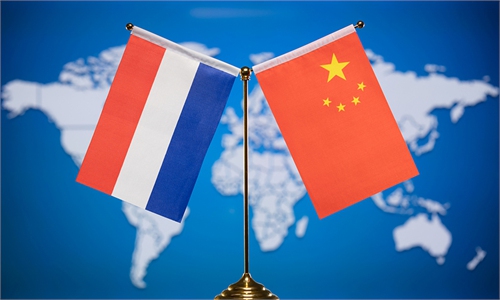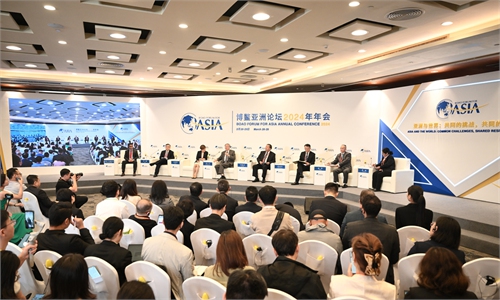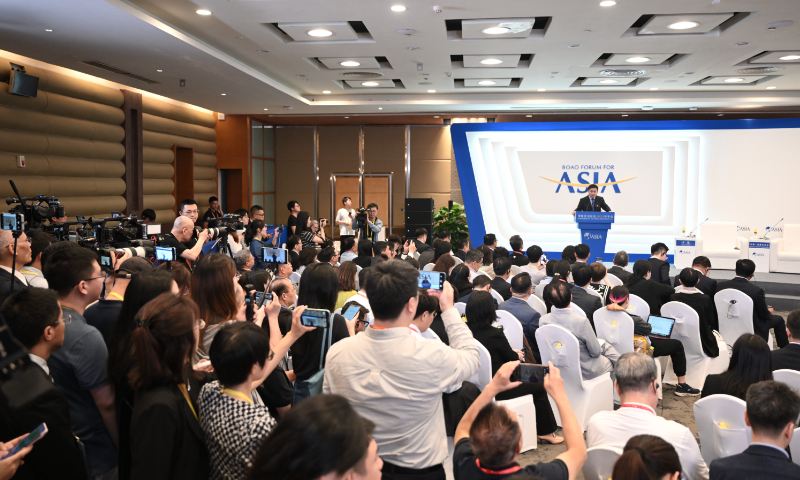 Nvidia Photo: VCG
Nvidia Photo: VCGNvidia CEO visits Beijing, highlights importance of Chinese market
Nvidia CEO Jensen Huang, who has visited China again three months after his trip in January, recently publicly stated that the company would "unswervingly serve the Chinese market" and emphasized China's key role in the global supply chain. He said Nvidia has grown together with the Chinese market and achieved mutual success. Against the backdrop of the US imposing tariffs and banning Nvidia's export of H20 chips to China, Huang's visit and his emphasis that China is a "very important market for Nvidia" can be seen as US companies' indirect resistance to US government's protectionist trade policies. His stance, viewing China as an opportunity rather than a threat, and the call for cooperation rather than decoupling, resonates strongly with the American tech and business community.
China is one of the world's largest consumer markets, and its thriving industrial ecosystem and broad application scenarios provide crucial momentum for continuous innovation for many American companies like Nvidia. As Huang put it, in-depth cooperation with Chinese companies has enabled it to evolve into an even more competitive international enterprise. Previously, some US business leaders also noted that they don't need to hitch a ride with the US government, they need the government to clear the path for us. The importance and urgency of cooperation with China have "unexpectedly" been highlighted against the backdrop of the US' reckless imposition of tariffs.
Not just in the tech and business industry, the call for "We need China" has recently spread across various sectors of American society. A recent poll by Pew Research Center also revealed surprising results. The survey showed that fewer and fewer Americans now view China as an enemy, with significant year-over-year decline in the share of Americans with an unfavorable view of China over the past five years. Bloomberg described this as "a sentiment that runs counter to the tariff," calling the finding "surprising." Moreover, on overseas social platforms like TikTok, Chinese e-commerce has unexpectedly risen to prominence, sparking a new wave of "Made in China" enthusiasm among US consumers. Many influencers have posted unboxing videos of products bought from Chinese e-commerce platforms, exclaiming that they can get the same quality items for just a tenth of the price.
Despite Washington frequently sent signals of confrontation, which has pushed China-US economic relations to the brink and, American society is not in favor of a zero-sum game between the two countries. Pew's survey results, to some extent, puncture the bubble of the so-called tariff policies inflated by Washington. Relevant approach has not reflected public opinion in the US, but instead oversimplifies the complexity and multifaceted nature of the bilateral relationship, turning it into a full-scale confrontation. Washington's abuse of tariffs ignores the high degree of economic complementarity between the two countries and the practical needs of their people, creating chaos and uncertainty for both the US and the global economy - something the American public is feeling firsthand.
Those who are "surprised" by public opinion should reflect on what exactly is American public's attitude toward China, and who is "influencing" Americans' perceptions of China. Over the past few years, the so-called "China threat" has almost become the default opening line for politicians when discussing China, and the attitudes of some members of the public have also been affected. "China is taking advantage of the US," "the US must get the trade imbalance fixed," and "pursuing economic containment of China to achieve 'America First'" - this is the outdated logic behind Washington's so-called tariff policies toward China.
China-US economic and trade cooperation has brought enormous economic benefits to both sides, and the US has benefited just as much as China. The US imports a large volume of consumer goods, intermediate goods, and capital goods from China, supporting the development of its manufacturing supply chains and industrial chains, enriching consumer choices, lowering the cost of living, and improving the real purchasing power of the American public, especially for middle- and lower-income groups. When taking into account goods trade, services trade, and the local sales revenue of domestic enterprises operating in each other's countries, the economic gains from China-US trade are roughly balanced. These facts cannot be concealed by lies or slander; in fact, the more China-US economic and trade relations come under strain, the more likely these truths are to resonate within the US.
Gavin Newsom, governor of California, recently announced plans to sue the US federal government over its abuse of tariff policies, stating, "We're standing up for American families who can't afford to let the chaos continue."
The hope of the China-US relationship lies in the people, its foundation is in the two societies, its future depends on the youth, and its vitality comes from exchanges at subnational levels. According to the public opinion survey conducted by the Global Times Institute (GTI) on "mutual perceptions between China and the US" in 2024, around 90 percent of respondents from both China and the US express concern over bilateral relations, with mainstream public opinion in both countries favoring strengthened economic and trade exchanges, people-to-people exchanges, and cooperation on climate change.
The phenomenal grassroots interactions between Americans and Chinese on social media recently also reflect that, beneath the anti-China clamor stirred up by some Washington politicians, there remains a strong, constructive desire among the people of both nations for peaceful coexistence and cooperative engagement. If the US continues to go its own way, pressing China with tariff blackmail and inciting for China-US "decoupling," the growing opposition from their voters may become a political reality that Washington can no longer ignore.Related posts:





















